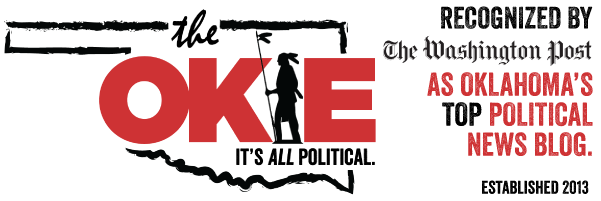Chamber: Study Shows Importance, Economic Impact of OK Public Higher Ed.
Study Shows Importance and Economic Impact of Public Higher Education in Oklahoma
OKLAHOMA CITY (April 3, 2013) – The state economy, Oklahoma citizenry and individual Oklahomans are benefiting significantly from the state’s public colleges and universities, according to a new report from the Battelle Technology Partnership Practice.
The report, “Oklahoma Public Higher Education: Economic and Social Impacts,” was prepared for the State Chamber Research Foundation and provides an in-depth analysis of the economic and functional impacts generated by the expenditures, education, research and outreach of Oklahoma’s public colleges and universities.
“Having a skilled and well-educated workforce is critical to our state’s economic success,” said State Chamber President Fred Morgan. “This report reinforces the important impact our state’s colleges and universities have on our economy and ability to create and retain jobs and investment in our state.”
Specifically, the report shows that the expenditures of the Oklahoma public higher education system generate $9.2 billion in economic output impacts in the state and support more than 85,000 Oklahoma jobs. The study also reveals that, on average, bachelor’s degree holders earn nearly twice as much and contribute twice the tax revenue as individuals whose education concluded at the high school graduate level. The report notes:
At the current time, and into the foreseeable future, it is hard to overstate the importance of education, and especially higher education, to economic and social progress in the U.S. In a modern, knowledge-driven economy the most valuable asset a state can possess is a well‐educated and skilled populace.
Among its other key findings, the Battelle study reports that in Oklahoma:
- The estimated return on investment for public higher education is $4.72 for every $1.00 of state funding.
- Public higher education is the key provider of higher education services, enrolling more than 190,000 students and awarding more than 30,000 degrees annually.
- Nearly 90 percent of Oklahoma public higher education graduates live and work in the state one year after graduation, and more than 70 percent still remain in the state five years after graduation.
- Higher education system graduates enjoy higher average incomes, increased financial security, and more job satisfaction, and are less likely to access the welfare system than those who do not pursue higher education.
- Public universities have a strong and flourishing presence in advanced research, conducting $360 million in annual research and growing their research volume at a pace that exceeds the national growth rate.
- For every $1 in state funding, public universities attract an additional $2.24 in federal funding.
“The State Regents are very pleased with the results of the Battelle Study,” said Chancellor Glen D. Johnson. “Our state system of higher education continues to produce graduates who live and work in Oklahoma, while our taxpayers continue to receive a substantial economic return from higher education. This study further confirms that public higher education is an invaluable resource for our state and our citizens.”
The Battelle study’s analysis of research publications and funding data show Oklahoma’s public research universities have particularly notable performance in a range of academic research fields that are highly relevant to the state economy, including: agricultural and environmental sciences; energy-related research disciplines; manufacturing-related research disciplines; clinical medicine; and broader physical and biological sciences. The report notes that Oklahoma’s universities have been particularly successful in leveraging federal funds and gaining industry-sponsored research funding, which rose 49.8 percent over the recent five-year period of the study, far outpacing the national growth rate of 25.8 percent.
The study also concludes that the enhanced economic productivity, stronger economic growth and reduced reliance on social programs achieved through higher education directly benefit government, industry and society. Additional benefits of a highly educated populace include greater civic engagement, more volunteerism and improved child welfare, among other important factors.
###
About the State Chamber Research Foundation
The State Chamber Research Foundation is a research organization working in partnership with state business leaders, economists and university researchers to advance and fund activities in public policy research that promote the future of Oklahoma. The State Chamber of Oklahoma has had an affiliated research foundation since 1981. Over the last 30 years, the foundation (and its predecessors, Oklahoma 2000 and Oklahoma 21st Century) has been a critical voice for improving Oklahoma’s pro-business climate. For more information, visit www.okstatechamber.com/research-foundation.
Contact:
Jennifer Monies
jmonies@okstatechamber.com
405-235-3669


Interesting information, but woefully incomplete if we don’t consider where this money comes from in the first place. As economist Richard Vedder pointed out in analyzing a similar report years ago: If the money extracted from Oklahoma’s highly productive, for-profit private sector and given to the government’s higher education system had been retained by entrepreneurs and investors, it would have had a similar positive impact on job creation. Thus, the net economic impact of taking money from productive citizens in the form of taxes and giving it to higher education is far, far less than what conventional analysis assumes.